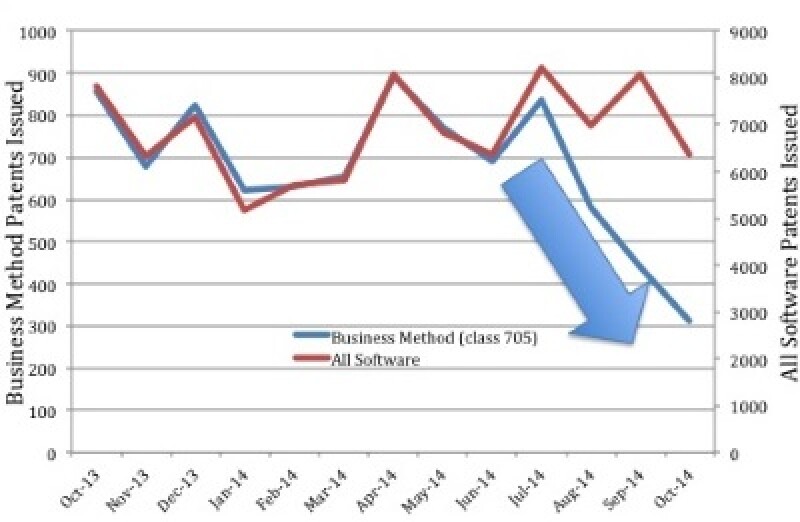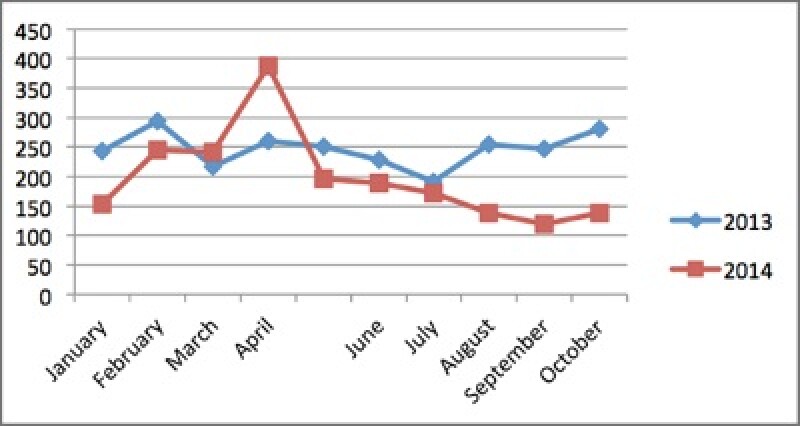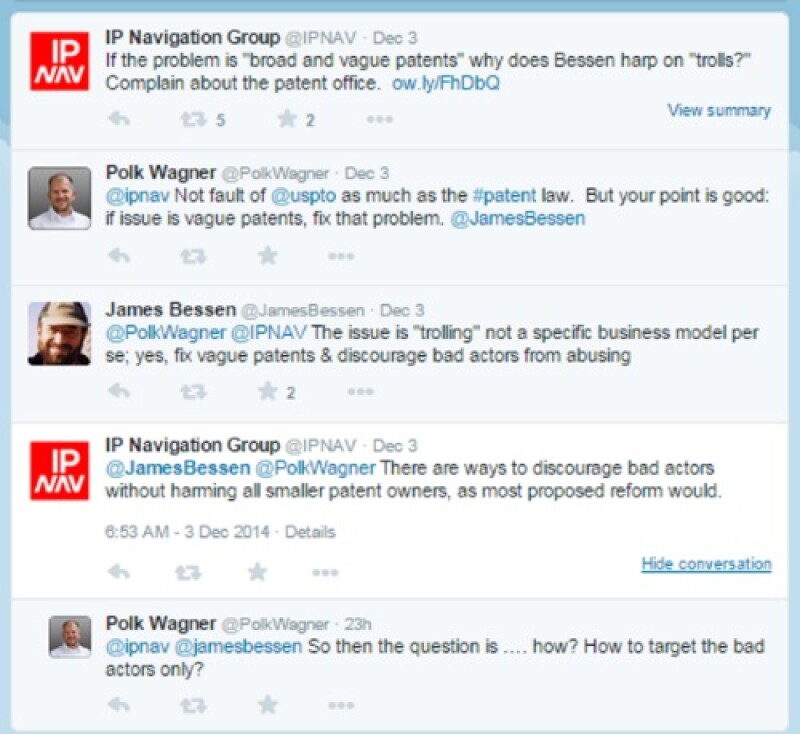As is the case for following US politics, keeping on top of the debate about patent trolling can be an exhausting and futile process, with no one on any side conceding an inch.
The latest contribution to the debate comes from James Bessen. Writing in The Atlantic, the Boston University School of Law scholar reports that patent litigation is falling and provides a strong overview of the possible reasons for this.
This confirms what we have also outlined in recent weeks. Patent litigation has fallen since June’s Supreme Court Alice v CLS Bank decision but has also been down all year. It seems likely that the two biggest influences on this are Alice and the rise of the Patent Trial and Appeal Board giving those accused of infringing patents a mechanism for having them potentially invalidated.

Bessen adds some points of interest, the most important of which is a chart showing patents issued by the USPTO (right). The number of business method patents being issued has plummeted, from more than 800 in July to barely more than 300 in October. Bessen notes, however, that software patent issuance is still very high.
“But don't shed too many tears for the patent trolls just yet,” he writes. “While these changes are a real positive step, they are also limited. While it's true that the Patent Office is granting several hundred fewer business method patents each month, it is still granting record numbers of software patents overall. Most of the litigation is over software patents, not business method patents.”
Bessen cites a study by Professor Michael Risch that estimated business method patents constitute only 10% of the patents used in lawsuits by non-practicing entities. Bessen adds that, while lawsuits have recently decreased, there are still more than four times as many as in 1990, before a surge in software patenting began following court decisions in the mid-1990s.

This may be true but is 1990 a desirable or reasonable benchmark in any case? The world is very different now. Only about 15% of US households had PCs in 1990, for a start, let alone smartphones. In addition, as can be seen in the chart on the right, according to our analysis of litigation statistics from Docket Navigator the number of software patent lawsuits is falling faster than overall patent litigation (although it should be noted our analysis for software patents includes the 705 business method patent class).
In the headline of the piece noting that the courts have curbed patent trolling, Bessen (or his subeditor) adds “– for now” at the end. But the piece does not offer much discussion of why it will go back up, suggesting anyway that further action is needed to really tackle the problem (this is a point Bessen has made more than once recently).
As I have noted before, the argument for patent reform is surely harder to make now. A personal view is lawmakers should wait to see if the recent fall in litigation is a blip or a longer-term trend before charging ahead with further legislation.
Bessen received some pushback on Twitter from his piece with non-practicing entity IP Nav and University of Pennsylvania law professor Polk Wagner weighing in:










